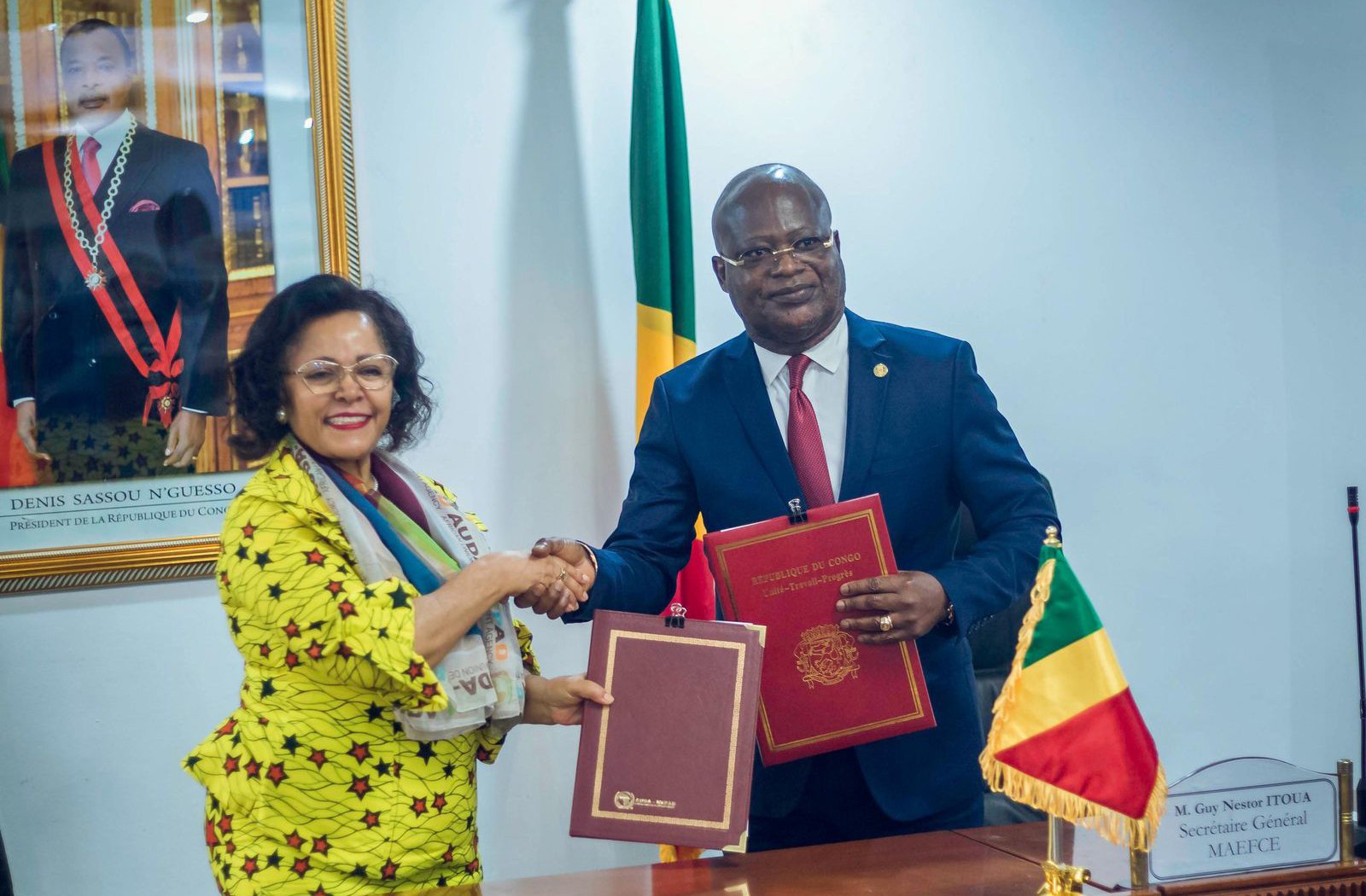This article was produced with the support of AUDA NEPAD
In a landmark move towards bolstering development initiatives across Africa, the African Union Development Agency – New Partnership for Africa’s Development (AUDA-NEPAD) has formalised an agreement with the government of the Republic of Congo to establish a national office in Brazzaville. This milestone agreement was signed by His Excellency Guy Nestor Itoua, secretary general of the Ministry of Foreign Affairs, cementing the agency’s commitment to strengthening its presence at the national level.
The establishment of the national office in Brazzaville is a significant step forward in the organisation’s mission to deliver tailored technical support and accelerate development within African Union (AU) member states. As part of the broader AUDA-NEPAD Footprint Structure initiative, this office will function as a crucial hub, enabling enhanced collaboration with the Congolese government while facilitating the effective implementation of priority projects in key sectors, including health, infrastructure, agriculture and industrialisation.
Enhancing national capacity
The newly established office is set to play a pivotal role in equipping the Republic of Congo with the expertise and resources to drive sustainable growth. Through closer cooperation with the government, AUDA-NEPAD aims to ensure development projects are well-aligned with national priorities, thereby fostering inclusive economic growth and resilience.
AUDA-NEPAD CEO Nardos Bekele-Thomas emphasised the strategic importance of this agreement, stating, “This agreement marks a pivotal moment for AUDA-NEPAD and our collaboration with the government of the Republic of Congo. The establishment of a national office in Brazzaville reinforces our commitment to providing tailored technical support to our member states. It is a testament to our shared vision of advancing sustainable development, empowering communities and accelerating growth across Africa.”
With a presence embedded within the country, AUDA-NEPAD will be able to streamline the deployment of its expertise, ensuring that strategic initiatives are effectively translated into tangible, impactful outcomes. By working in tandem with national stakeholders, the agency will offer guidance on policy implementation and capacity-building measures aimed at fostering long-term prosperity.
Supporting Agenda 2063 implementation
The Republic of Congo is among the 48 AU member states that have been sensitised and trained on the Second Ten-Year Implementation Plan (STYIP) of Agenda 2063. This ambitious blueprint, formulated by the African Union, sets forth a vision for the continent’s transformation, with a strong focus on industrialisation, economic integration and social development.
To facilitate national adaptation, AUDA-NEPAD has developed domestication tools designed to align country-level policies with the overarching goals of Agenda 2063. The new office in Brazzaville is expected to provide a platform for enhancing the Republic of Congo’s engagement with these tools, thereby driving greater efficiency in the execution of national development plans.
As Africa continues its journey towards achieving the aspirations of Agenda 2063, the role of institutions like AUDA-NEPAD becomes increasingly vital. By working closely with national governments, the agency ensures that continental strategies are effectively localised, bridging the gap between policy formulation and on-the-ground implementation.
Commitment to transformational development
AUDA-NEPAD’s decision to expand its footprint in the Republic of Congo aligns with its broader mission of promoting sustainable development and fostering economic self-sufficiency among AU member states. Through this agreement, the agency reaffirms its commitment to collaborating with national stakeholders to drive transformative change across multiple sectors.
Key focus areas for AUDA-NEPAD’s technical support include public health, where strengthening national health systems and expanding access to essential healthcare services are crucial. Infrastructure development is another priority, focusing on enhancing transportation networks, energy projects and digital connectivity to facilitate economic growth. Agriculture and food security initiatives are also central, aiming to boost agricultural productivity and ensure food security. Additionally, industrialisation and job creation efforts seek to promote industrial growth, generate employment opportunities and drive economic diversification.
AUDA-NEPAD is taking steps to accelerate the realisation of these development priorities, ensuring that the Republic of Congo is well-positioned to reap the benefits of targeted interventions and capacity-building efforts.
Strengthening regional cooperation
Given the interconnected nature of development challenges, the presence of AUDA-NEPAD at the national level will facilitate greater synergy between Congo and its neighbouring countries, enhancing cross-border collaboration on shared development objectives.
Regional integration remains a cornerstone of Africa’s development strategy, and AUDA-NEPAD’s efforts to reinforce national engagement play a crucial role in fostering unity among member states. The Brazzaville office will serve as a model for other countries looking to strengthen their engagement with AUDA-NEPAD and leverage its technical expertise to advance their development agendas.
The signing of this agreement marks the beginning of a new chapter in AUDA-NEPAD’s engagement with the Republic of Congo. Moving forward, AUDA-NEPAD will continue working closely with the Congolese government to identify priority projects, mobilise resources and provide technical guidance to ensure successful implementation. This collaborative approach is expected to yield substantial benefits for local communities, driving progress towards economic prosperity and social wellbeing.
With Africa at a critical juncture in its development journey, partnerships such as this between AUDA-NEPAD and the Republic of Congo serve as beacons of hope for a future defined by inclusive growth, resilience and shared prosperity.
Crédito: Link de origem


